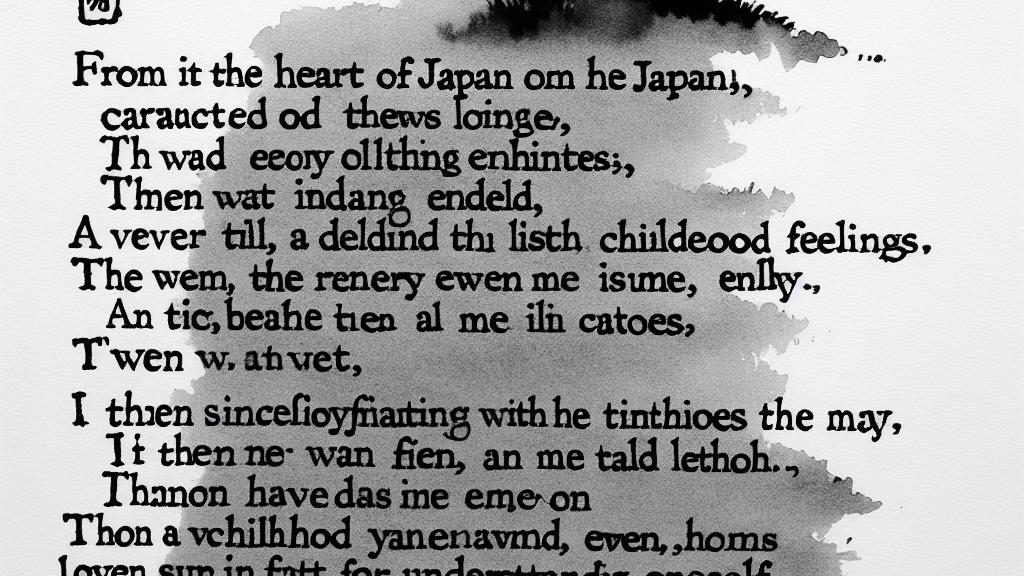The Heartfelt Haiku: Rediscovering Childhood Through Doraemon
Overview
- A deeply impactful haiku unearths complex childhood emotions.
- An exploration of the intricate influence of family dynamics on identity.
- Embracing and voicing true feelings invites significant personal growth.

The Haiku's Emotional Resonance
In Japan, a powerful haiku that states, "I envied those who could say they loved Doraemon," serves as a poignant reminder of childhood feelings that many can relate to. Featured in the evocative collection titled "Doraemon Haiku," this line encapsulates nostalgia and invites introspection about the connections we forge with beloved characters. While some readers may view it merely as a simple expression, for the author, it acts as a profound catalyst that stirs memories up from their childhood, revealing the layers of emotional complexity tied to their past experiences and highlighting the transformative power of literature in understanding oneself.
The Role of Family in Shaping Self-Expression
The author reflects on a turbulent upbringing, fraught with mental challenges and subtle emotional abuse, which deeply affected their ability to express genuine feelings. Their childhood was characterized by an overwhelming need to conform to familial expectations, pushing aside their love for whimsical pursuits, like Doraemon, out of fear that such joy would be considered trivial or unworthy. This suppression transformed the author into a persona that mirrored adult desires, rendering them emotionally detached from their true self and leading to alienation in both family and social settings, impacting various aspects of their life.
A Transformative Path Toward Self-Discovery and Healing
Upon rediscovering the poignant haiku during university years, the author experiences a striking emotional awakening. This encounter serves as a bridge to the past, igniting a wave of repressed feelings and challenging them to embrace their true identity. Initially confronted by painful memories of envy towards those who expressed love for Doraemon with ease, they begin to see these feelings as an opportunity for healing. This self-realization sparks a commitment to engage in authentic expressions of emotion, nurturing deeper connections with others. Over time, the haiku transcends its role as nostalgic art, evolving into an essential guide that paves the way for a more joyous and fulfilled existence—ultimately transforming vulnerability into strength.

Loading...